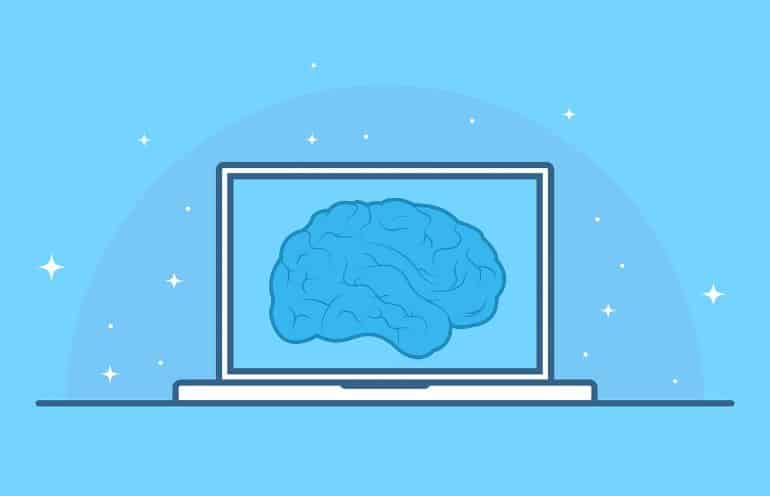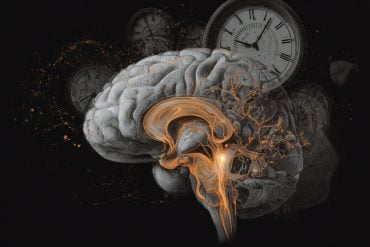Summary: Using machine learning to analyze blood samples, researchers have identified a group of new biomarkers that could lead to early diagnosis of autism.
Source: UT Southwestern Medical Center
Using machine learning tools to analyze hundreds of proteins, UT Southwestern researchers have identified a group of biomarkers in blood that could lead to an earlier diagnosis of children with autism spectrum disorder (ASD) and, in turn, more effective therapies sooner.
The identification of nine serum proteins that strongly predict ASD were reported in a study published today by PLOS ONE.
Earlier diagnosis, followed by prompt therapeutic support and intervention, could have a significant impact on the 1 in 59 children diagnosed with autism in the United States. Being able to identify children on the autism spectrum when they are toddlers could make a big difference, says Dwight German, Ph.D., professor of psychiatry at UT Southwestern and senior author of the study.
Currently, the average age of a child diagnosed with ASD in the U.S. is 4 years old. Diagnosis before the age of 4 means that a child is more likely to get effective, evidence-based treatment, such as therapies directed at core ASD symptoms, including inflexible behaviors and the lack of communication or social skills.
Many blood-based biomarker candidates have been investigated, including neurotransmitters, cytokines, and markers of mitochondrial dysfunction, oxidative stress, and impaired methylation. However, given the prevalence of ASD, the use of machine learning to incorporate demographic and clinical data into the analysis could more powerfully examine disease status and symptom severity.
For the study, serum samples from 76 boys with ASD and 78 from typically developing boys, all ages 18 months to 8 years, were examined.
All nine proteins in the biomarker panel were significantly different in boys with ASD compared with typically developing boys. Researchers found that each of the nine serum proteins correlated with symptom severity.

More than 1,100 proteins were examined using the SomaLogic protein analysis platform. A panel of nine proteins was identified as optimal for predicting ASD using three computational methods. The researchers then evaluated the biomarker panel for quality using machine learning methods. Future studies are needed to fully validate the present findings.
“The more significantly affected the child is, the higher or lower than normal the blood biomarker is,” German says. “Ideally, there will be a day when a child is identified using blood biomarkers as being at risk for developing ASD and therapies can be started immediately. That would help the child develop skills to optimize their communication and learning.”
The children in the study were recruited by Laura Hewitson, Ph.D., and Morgan Devlin at The Johnson Center for Child Health & Development, a multidisciplinary treatment center in Austin, Texas, that uses a unique combination of clinical care, research, and education to further the understanding of ASD and related developmental disorders. Hewitson noted that, “The earlier we can identify children with autism, the more understanding we can gain on ways to provide support and therapies that will improve their quality of life.”
Other researchers who contributed to this project were Jeon Lee, Ph.D., and Jeremy Mathews in the Lyda Hill Department of Bioinformatics at UT Southwestern, and Claire Schutte with The Johnson Center.
Funding: The study was funded by a grant to Hewitson from the Ted Lindsay Foundation, whose mission is to support research and educational programs focusing on the cause and management of ASD.
About this AI and ASD research news
Source: UT Southwestern Medical Center
Contact: Press Office – UT Southwestern Medical Center
Image: The image is in the public domain
Original Research: Open access.
“Blood biomarker discovery for autism spectrum disorder: A proteomic analysis” by Laura Hewitson, Jeremy A. Mathews, Morgan Devlin, Claire Schutte, Jeon Lee, Dwight C. German. PLOS ONE
Abstract
Blood biomarker discovery for autism spectrum disorder: A proteomic analysis
Autism spectrum disorder (ASD) is a neurodevelopmental disorder characterized by deficits in social communication and social interaction and restricted, repetitive patterns of behavior, interests, or activities. Given the lack of specific pharmacological therapy for ASD and the clinical heterogeneity of the disorder, current biomarker research efforts are geared mainly toward identifying markers for determining ASD risk or for assisting with a diagnosis.
A wide range of putative biological markers for ASD is currently being investigated. Proteomic analyses indicate that the levels of many proteins in plasma/serum are altered in ASD, suggesting that a panel of proteins may provide a blood biomarker for ASD. Serum samples from 76 boys with ASD and 78 typically developing (TD) boys, 18 months-8 years of age, were analyzed to identify possible early biological markers for ASD. Proteomic analysis of serum was performed using SomaLogic’s SOMAScanTM assay 1.3K platform.
A total of 1,125 proteins were analyzed. There were 86 downregulated proteins and 52 upregulated proteins in ASD (FDR < 0.05).
Combining three different algorithms, we found a panel of 9 proteins that identified ASD with an area under the curve (AUC) = 0.8599±0.0640, with specificity and sensitivity of 0.8217±0.1178 and 0.835±0.1176, respectively. All 9 proteins were significantly different in ASD compared with TD boys, and were significantly correlated with ASD severity as measured by ADOS total scores.
Using machine learning methods, a panel of serum proteins was identified that may be useful as a blood biomarker for ASD in boys. Further verification of the protein biomarker panel with independent test sets is warranted.






